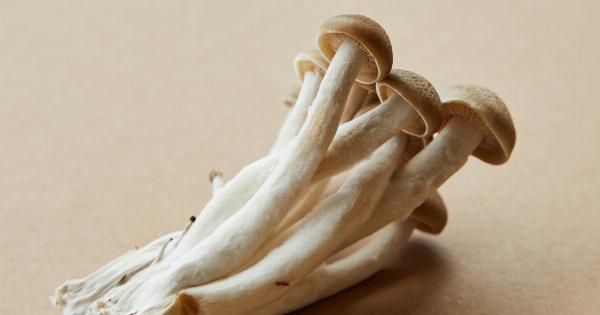Brittle nails can be frustrating and even painful. They split, peel, and break easily, making it difficult to maintain a manicure and leaving your hands feeling rough and damaged.
Luckily, there are several ways to strengthen your nails and improve their health.
Evaluate Your Diet
One of the most common causes of brittle nails is a lack of proper nutrients in your diet. Be sure to eat a balanced diet rich in vitamins, minerals, and protein.
Foods like salmon, almonds, spinach, and sweet potatoes are great sources of nutrients that promote nail health. Taking a daily multivitamin can also help fill any nutritional gaps in your diet.
Keep Your Nails Moisturized
Dry nails are more prone to breakage and splitting than hydrated nails. Incorporate a cuticle oil or nail cream into your daily routine to keep your nails moisturized. Products containing Vitamin E or jojoba oil can help nourish and strengthen your nails.
Apply the moisturizer to your nails and cuticles every night before bed.
Avoid Harsh Chemicals
Exposure to chemicals can weaken and damage your nails. Avoid harsh cleaning products and always wear gloves when washing dishes or cleaning. Acetone-based nail polish removers can also dry out your nails.
Look for nail polish removers that are acetone-free, and limit your use of gel nails as the removal process can be particularly damaging to your nails.
Give Your Nails a Break
Wearing nail polish for long periods can cause your nails to become weak and brittle. Consider giving your nails a break by going polish-free for a few weeks. Use this time to focus on nail care and let your nails heal and recover.
Be Careful When Filing Your Nails
Filing your nails too aggressively can cause them to become weak and break easily. Always file your nails in one direction, rather than back and forth, to avoid weakening them.
Use a gentle touch and a fine-grit nail file, and never file your nails when they are wet, as this can cause them to split.
Use a Top Coat and Nail Hardener
A clear topcoat can help protect your nails from damage and give them a longer-lasting shine. Nail hardeners, which contain strengthening ingredients like protein and calcium, can also help improve the health of your nails.
Look for a hardener that works for your specific nail type and follow the directions carefully when applying.
Get Regular Manicures
Regular visits to a nail salon can be a great way to keep your nails healthy and strong. A professional manicure can help remove dead skin and promote healthy nail growth.
Some salons also offer specific treatments, like paraffin wax or nail masks, that can nourish and strengthen your nails.
Try Nail Hacks and Tips
There are plenty of “nail hacks” out there that can help improve the health of your nails. For example, applying a coat of clear nail polish every other day can help protect them from damage.
You can also try soaking your nails in warm olive oil or using a concoction of lemon juice and vinegar to strengthen them. Just be sure to do your research and make sure any tips or treatments are safe before trying them.
Invest in Quality Nail Products
The quality of your nail products can make a big difference in the health of your nails. Look for high-quality nail polishes that are free of harmful chemicals like formaldehyde and toluene.
Invest in a good nail brush to keep your nails clean and healthy, and don’t forget to replace your nail files when they become dull.
Conclusion
Brittle nails can be a frustrating problem, but with the right care and attention, you can improve their health and strength.
From evaluating your diet to investing in quality nail products, there are plenty of ways to ensure that your nails stay strong and healthy. With these tips and tricks, you can say goodbye to brittle nails and hello to beautiful, healthy nails.





























